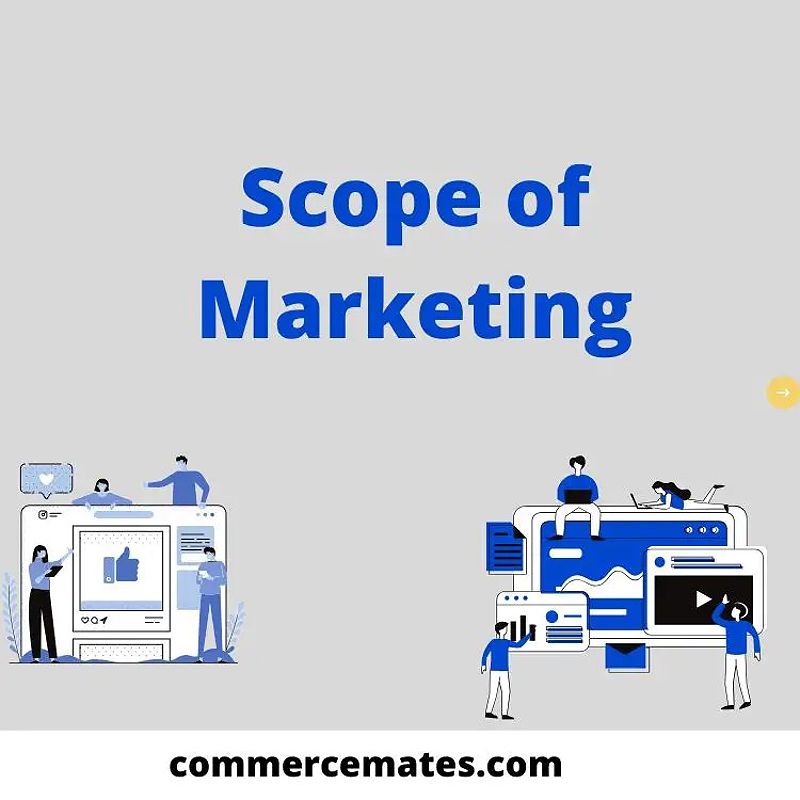Understanding Advertising as an Industry
Definition & Scope
At its core, advertising as an industry is all about communication. It involves a myriad of practices aimed at promoting products, services, and brands to target audiences. This sector is far-reaching, encompassing various domains such as consumer goods, healthcare, entertainment, and even social causes. Each sector contributes to the overarching influence advertising has on business success and consumer behavior.
Toc
Historically, advertising began as simple announcements in town squares and has evolved dramatically. From print ads in newspapers to the rise of television commercials, and now, the omnipresence of digital ads, the industry has undergone transformative changes. With the advent of the internet, advertising has adapted to new technologies and consumer habits, making it an ever-evolving field that requires constant learning and adaptation.

Key Functions
Understanding the core functions of advertising is crucial for anyone entering this industry.
-
Information Dissemination: One of the primary roles of advertising is to inform consumers about new products, features, and pricing. This function is vital as it helps consumers make informed decisions and fosters brand loyalty. Consider a new smartphone launch; advertising serves to educate potential buyers about its features, advantages, and pricing, ultimately guiding their purchasing decisions.
-
Brand Building: Advertising is instrumental in establishing and reinforcing brand identity. It shapes how consumers perceive a company or product, often creating emotional connections through storytelling and persuasive techniques. For example, a well-crafted advertisement can turn a mundane product into a beloved brand by connecting with consumers on a personal level.
-
Consumer Persuasion: The art of persuasion is central to advertising. By employing emotional appeals and strategic messaging, advertisers can influence consumer choices, making them more likely to choose one brand over another. Think about the classic “Got Milk?” campaign; it not only promoted milk consumption but also created an emotional association that resonated with consumers.
To illustrate, consider a product launch campaign. It not only informs consumers about the new offering but also builds excitement and creates a narrative that resonates emotionally, ultimately driving sales.
Industry Trends
The advertising landscape is in a state of constant flux, driven by technological advancements and shifting consumer preferences.
- Digital Transformation: The shift towards digital advertising has been monumental. As more consumers spend time on online platforms, businesses are adapting their strategies to engage audiences through social media, influencer marketing, and content marketing. Digital platforms allow for real-time engagement and feedback, creating a two-way conversation between brands and consumers.

- Data-Driven Strategies: Today, data analytics play a critical role in advertising. Marketers utilize data to identify target audiences and refine their campaigns, leading to more personalized consumer experiences. This capability not only enhances the effectiveness of advertising but also allows brands to connect more deeply with specific demographics. For instance, targeted ads on social media platforms can reach users based on their interests and behaviors, increasing the likelihood of engagement.
However, the digital landscape is not without its challenges. Privacy concerns and the rise of ad-blocking technologies have created a pressing need for ethical practices in advertising. As the industry navigates these challenges, finding a balance between innovation and consumer trust will be crucial for long-term success.
Essential Skills
For those aspiring to make their mark in advertising, developing a diverse skill set is non-negotiable.
-
Creative Thinking & Communication: Creativity is the lifeblood of advertising. The ability to craft compelling messages that engage audiences is paramount. Storytelling, in particular, helps create emotional connections that resonate with consumers. A successful ad campaign often hinges on a powerful narrative that captivates and inspires.
1. https://viralblogspost.com/archive/3559/
2. https://viralblogspost.com/archive/3127/
3. https://viralblogspost.com/archive/3529/
-
Marketing & Branding Knowledge: A solid understanding of marketing principles and branding strategies is essential. This knowledge enables professionals to analyze target audiences and determine effective outreach methods. For example, understanding the psychology behind consumer behavior can lead to more effective advertising strategies.
-
Technical Skills: In today’s digital age, familiarity with digital marketing tools, social media platforms, and data analysis software is increasingly important. Skills in SEO, content management systems, and analytics can set professionals apart in a competitive job market. The ability to leverage technology effectively can enhance campaign performance and drive measurable results.
Aspiring advertising professionals should focus on honing skills such as copywriting, graphic design, video production, and social media management. These competencies not only enhance employability but also prepare individuals for various roles within the industry.
Career Paths & Roles
The career landscape in advertising is diverse, offering numerous opportunities for growth.
- Advertising Agencies: Many professionals begin their careers in advertising agencies, which often consist of various departments like creative, account management, and media planning. Understanding the structure of an agency can help individuals identify where their skills might be best utilized. For example, those with a knack for creativity may thrive in the creative department, while those with strong organizational skills might excel in account management.

- In-House Marketing Teams: Companies also hire advertising professionals to manage their branding and marketing efforts. Roles such as marketing managers, brand managers, and content creators are vital in these settings, allowing individuals to contribute directly to a company’s success. Working in-house often provides a deeper understanding of a brand’s identity and target audience.
For those just starting, entry-level positions such as junior copywriters, graphic designers, or advertising operations coordinators provide valuable experience. These roles often serve as stepping stones to more advanced positions, helping professionals develop their skills and expand their networks.
Networking & Building Connections
Networking is an essential aspect of advancing in advertising as an industry. Establishing professional relationships can lead to job opportunities and collaborations that might not be accessible otherwise.
-
Importance of Networking: Building connections with industry professionals can provide insights into emerging trends and best practices. Networking not only opens doors but also fosters a sense of community among advertising professionals.
-
Networking Strategies: Attend industry events, join professional organizations, and utilize social media platforms to connect with experienced individuals in the field. Engaging with peers can open doors to opportunities and collaborations that may not be readily available. Participating in local advertising meetups or online forums can also enhance your visibility in the industry.
Mentorship is another invaluable resource for aspiring advertising professionals. A mentor with industry experience can offer guidance, share insights, and introduce newcomers to their professional networks, accelerating career growth and providing a clearer understanding of the industry’s nuances. Building a relationship with a mentor can also provide emotional support as you navigate the ups and downs of your career journey.
Building Your Advertising Portfolio
Portfolio Essentials
A well-crafted portfolio is a vital tool for showcasing skills and experience to potential employers. It should highlight your best work and demonstrate creativity, effectiveness, and versatility.
- Content Suggestion: Include a variety of projects—advertisements, social media campaigns, and marketing materials—to provide a comprehensive view of your capabilities. A diverse portfolio can set you apart in a competitive job market. For instance, showcasing a mix of traditional and digital projects can demonstrate your adaptability and understanding of various mediums.
When building your portfolio, pay attention to presentation formats. Clear organization and visually appealing layouts can enhance the overall impact. Regularly update your portfolio with new work and tailor it to align with specific job applications, showing potential employers your attention to detail and commitment to excellence.
Gaining Experience
Internships and entry-level jobs are crucial for gaining practical experience in advertising. These opportunities allow individuals to apply their knowledge in real-world settings and develop essential skills.
-
Internships & Entry-Level Jobs: Many companies offer internships that provide hands-on experience, allowing participants to learn about the industry and build their professional networks. Such experiences can often lead to full-time positions upon graduation. Engaging in internships not only provides practical skills but also enhances your resume, making you a more attractive candidate to future employers.
-
Freelancing & Side Projects: Taking the initiative to work on independent projects can demonstrate creativity and self-motivation. Freelancing allows for exploration across different aspects of advertising, from client management to campaign execution. Working on personal projects can also provide opportunities to experiment with new ideas and techniques, further enhancing your skills.
1. https://viralblogspost.com/archive/3127/
2. https://viralblogspost.com/archive/3463/
3. https://viralblogspost.com/archive/3243/
Education & Training
Formal Education
A degree in advertising, marketing, communications, or a related field is often essential for entering the industry. These programs provide foundational knowledge and skills applicable across various roles.
- Content Suggestion: Highlight specific programs, courses, and universities that offer strong advertising education. Engaging with academic institutions can provide networking opportunities and insights into industry trends. Participating in university-led advertising competitions or workshops can also enhance your practical experience.
Continuing Education & Certifications
Staying current with industry trends is vital for career advancement. Online courses and professional certifications can help individuals enhance their skills and adapt to the ever-evolving landscape of advertising.
- Content Suggestion: Provide a list of valuable certifications and online courses for advertising professionals. Participating in workshops, webinars, and industry conferences can significantly boost knowledge and networking potential. Additionally, many organizations offer certifications in digital marketing, social media management, and data analytics, which can greatly enhance your marketability.
FAQ
What are the most in-demand advertising skills right now?
In-demand skills include creative thinking, effective communication, digital marketing proficiency, data analysis, and social media management. As the industry continues to evolve, skills related to emerging technologies and platforms will become increasingly valuable.
How can I break into the advertising industry without a degree?
Building a strong portfolio, gaining experience through internships or freelance work, and networking with industry professionals can help you enter the field. Many successful professionals have started their careers through non-traditional pathways, emphasizing the importance of practical experience over formal education.
What are the best resources for learning about advertising trends?
Industry blogs, online courses, webinars, and professional organizations are excellent resources for staying informed about advertising trends. Engaging with thought leaders on platforms like LinkedIn can also provide valuable insights into the latest developments in the industry.
What are the top advertising agencies to work for?
While specific agency names may vary, aspiring professionals should research agencies that align with their values and career goals. Look for agencies known for innovation, creativity, and strong company culture, as these factors can significantly impact your job satisfaction.
Conclusion
Understanding advertising as an industry is essential for aspiring professionals looking to establish a successful career. By grasping the core functions, current trends, and necessary skills, individuals can navigate the diverse landscape of advertising effectively. Building a strong portfolio, networking, and pursuing ongoing education will further enhance career prospects in this dynamic field. As the industry continues to evolve, staying adaptable and informed will be key to long-term success.
By actively engaging with the community and continuously honing their skills, aspiring professionals can position themselves for rewarding careers in advertising. Whether through internships, networking events, or personal projects, every step taken towards understanding this multifaceted industry brings you closer to achieving your professional aspirations. Embrace the journey, and let your passion for advertising guide you towards a fulfilling and impactful career.















Leave a Reply